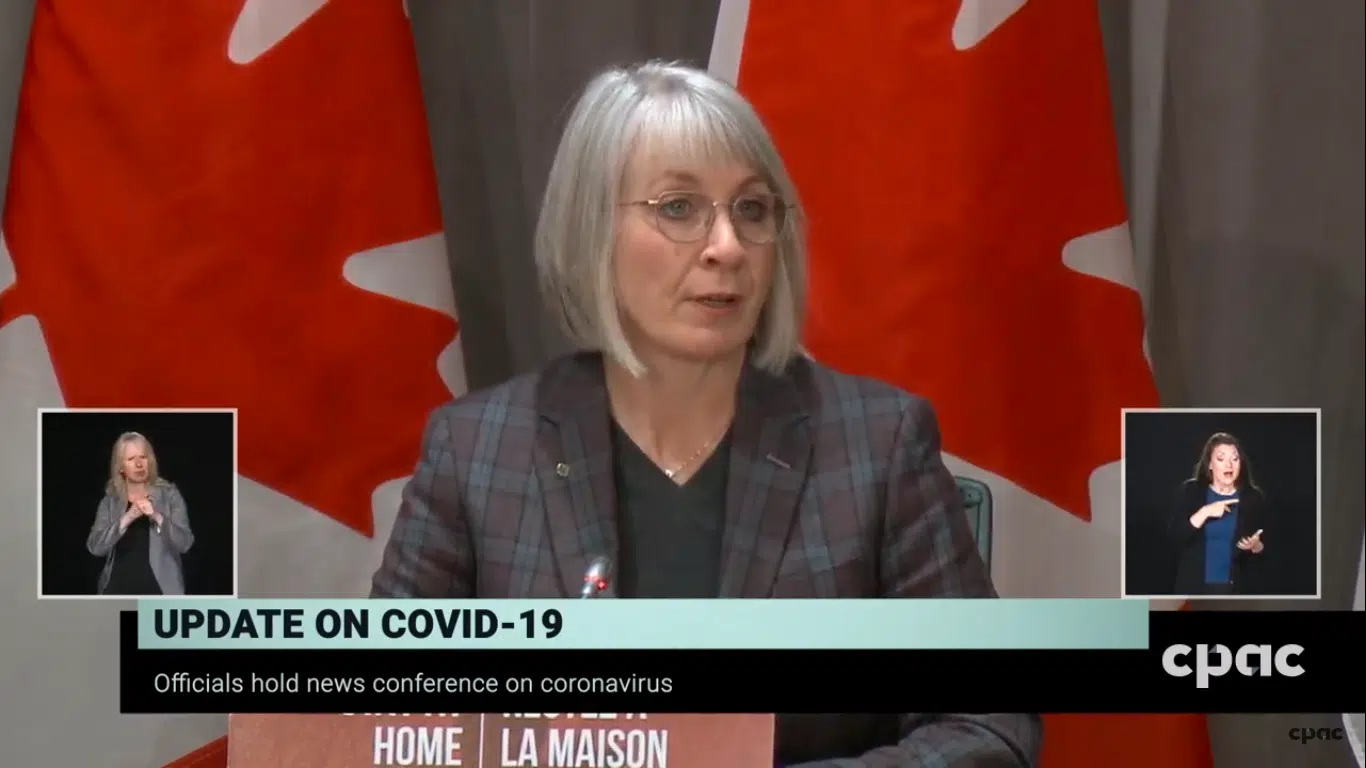Canada’s Health Minister says not to get discouraged by a recent spike in COVID-19 cases.
Speaking to Acadia Broadcasting’s John Ongaro, Patty Hajdu explains one day of higher numbers doesn’t mean our efforts aren’t working.
“It is going to go up and down, but what we’re looking for is the trend line,” Hajdu says. “So some days you might have more cases reported because the tests have come back, or because they’ve gotten some conclusive tests back on a particular cluster.”
The Health Minister adds the rate of new cases has declined since the coronavirus first appeared in Canada.
“When we were first ascending that curve, we were doubling cases every three days. Can you imagine, from 100 to 200 to 400 to 800, that’s rapid, exponential growth. What we now know is that our doubling rate is about every ten days,” Hajdu points out. She calls that the number to “pin our hopes on.”
Hajdu notes data from last week showed three out of four people were following public health guidelines to stay home aside from essential trips. She says we have to continue with these restrictions to avoid overwhelming the healthcare system.
The federal minister adds we are between one year and 18 months away from a vaccine, and she is looking at how to adapt the healthcare system in the long term.
“What do we have to make sure our hospitals are equipped in a long-term way to manage significantly ill people, and not just from COVID-19? That’s the work I’m doing,” she explains.
Hajdu suggests Canada will be very cautious about potentially opening the border with the United States, after American officials began discussing that option. She says our government is not eager to lift that restriction yet, or to re-open businesses.
“If we open up, quote-unquote ‘the economy’ too quickly, people will get sick and die,” Hajdu says, “And that will actually be worse for the economy than actually taking our time and doing it properly, and making sure we have the right safeguards in place so people can live with this new disease that doesn’t have a treatment, and doesn’t have a vaccine.”




